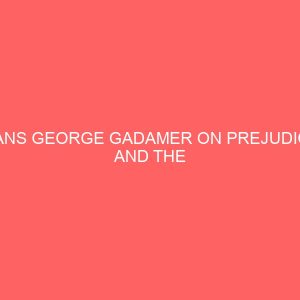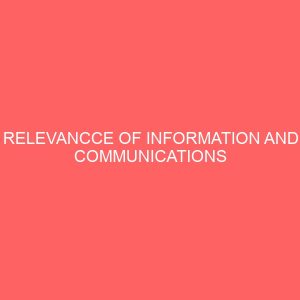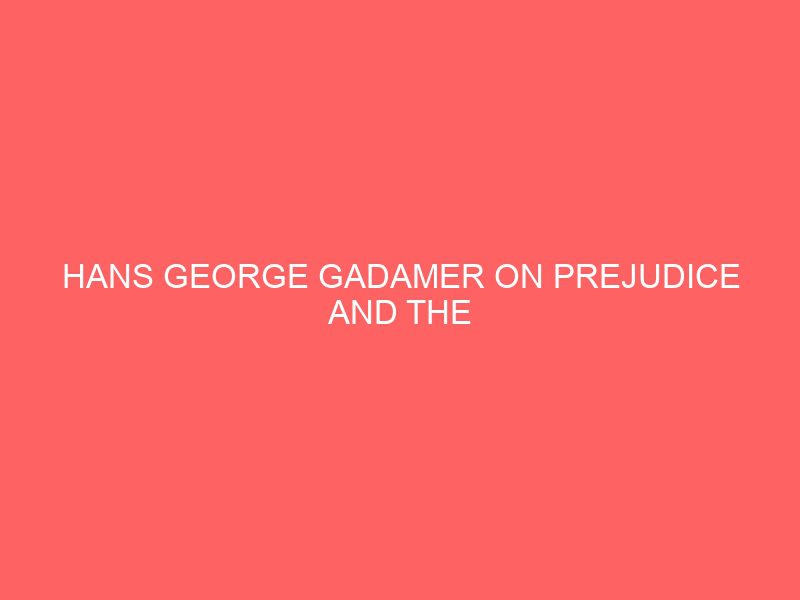Description
CHAPTER ONE INTRODUCTION 1.1 Background of the Study Given the fall outs from the current world order, a certain strand of contemporary philosophy makes the case for another world. In their estimation, ?another world is possible.?1 For some others within this school of thought, the alternative to the current world order should aim at creating ?a world in which all worlds fit?.2 Yet for another group, they seek ?worlds and knowledges otherwise?.3 For these schools of thought, the current world order is Euro-American and it possesses an exclusivist cosmovision. On this count, the current world order rather than seeking to arrive at a world in which all worlds fit just elevates the ideals of a particular world as a standard for other worlds to follow. In more specific terms, it is the Euro-American vision that has been universalised for all to follow. But the economic crises that greeted the West between 2007 and now places a lot of doubt on the continued efficacy of this cosmovision. The grand narrative which this vision held that ??once situated humanity in some continuing stream of meaning has faltered amidst existential doubt or economic and political ruins??4 This places before us therefore, the urgent need for an alternative cosmovision. The urgency of this need is one motivation for this research. Bearing in mind the fact that the world in which we live today is a global village, it becomes obvious that any effort at a new cosmovision cannot afford to ignore the demands for ?a world in which all worlds fit?. Arriving at this world is primarily a practical task. But before this task can be executed in practice, it must redefine itself at a theoretical level or better still as a theoretical endeavour. It is within this context of theoretical redefinition that Gadamer and the transmodern engagement with prejudice is appropriated in this research. More precisely, Gadamer?s direct appropriation of prejudice and its impact on the transmodern idea of the bio/geo/body-politics of knowledge challenges the idea of universality as is the case in the EuroAmerican cosmovision. This challenge is not in favour of subjectivism or relativism, but in favour of ?intersubjective dialogue? and ?pluriversality as a universal project?. Establishing these as genuine theoretical, as well as philosophical alternative upon which to achieve the practical task of building ?a world in which all worlds fit? is yet another motivation for this research. In establishing the epistemic potency of these positions for a new world order, something further engages the attention of this study. As has already been stated above, Gadamer?s hermeneutic philosophy and its prejudicial base5, alongside its impact on the transmodern concern for ?pluriversality as a universal project?6 are the favoured theoretical apparatus for achieving this new cosmovision. But then, a study of the transmodern project and its emphasis on delinking from the dominant macro-narratives projected by the West needs a closer scrutiny to establish how true the transmodern project is to this claim of delinking. The compelling force of this need is yet another motivating point for this research. 1.2 Statement of the problem The idea of the possibility of another world is an idea which was developed, partly, as a reaction to the effects of the ?clash of civilizations/cultures?. In the aftermath of the ?clash of cultures? came the rhetoric of ?cultural interaction/contacts? as alternative to the clash of cultures. But an observation of the world order, as it stands, still shows that the idea of ?cultural interaction? has not really proven to be a true alternative to ?the clash of cultures?; rather it has only succeeded in moderating and covering over the naked force that ?the clash of cultures? portend. This is the case because, under the guise of cultural interaction, ?super-cultures? have continued to valourise aspects of their cultures and to hold them up as ideals/universals for other (smaller) cultures to follow. The broad problematique of this research is therefore, that of finding a basis for sustaining the identity and uniqueness of smaller-cultures in the face of the imposing presence of ?super-cultures?. Based on this, the main question for this research is: is it possible to find a basis on which all cultures can interact and be appreciated in their uniqueness without losing sight of the common good for humanity and the planet? Or better still, can there be any basis for creating a world in which all worlds fit? To answer this question properly, the research is guided by the following questions: a) Are there any identifiable connections between Gadamer?s postulations on prejudice and the philosophy of the transmodern project? b) Has the transmodern project been able to extend Gadamer?s philosophical legacy in any way? c) Are the positions of Gadamer and the transmodern project with regard to prejudice tenable in any way? d) Are there any specific practical imports of Gadamer and the transmodern concerns that can aid in dismantling the current Euro-American cosmovision (colonial matrix of power) and fostering a collaborative approach to building a new world system and cross-cultural contact? 1.3 Thesis The thesis of this research is: A proper appropriation of Gadamer?s conceptualization of prejudice and of the influence it has had on the transmodern project can serve as the basis for a new principle of cross-cultural contact/evaluation; the ethical-hermeneutic principle of







